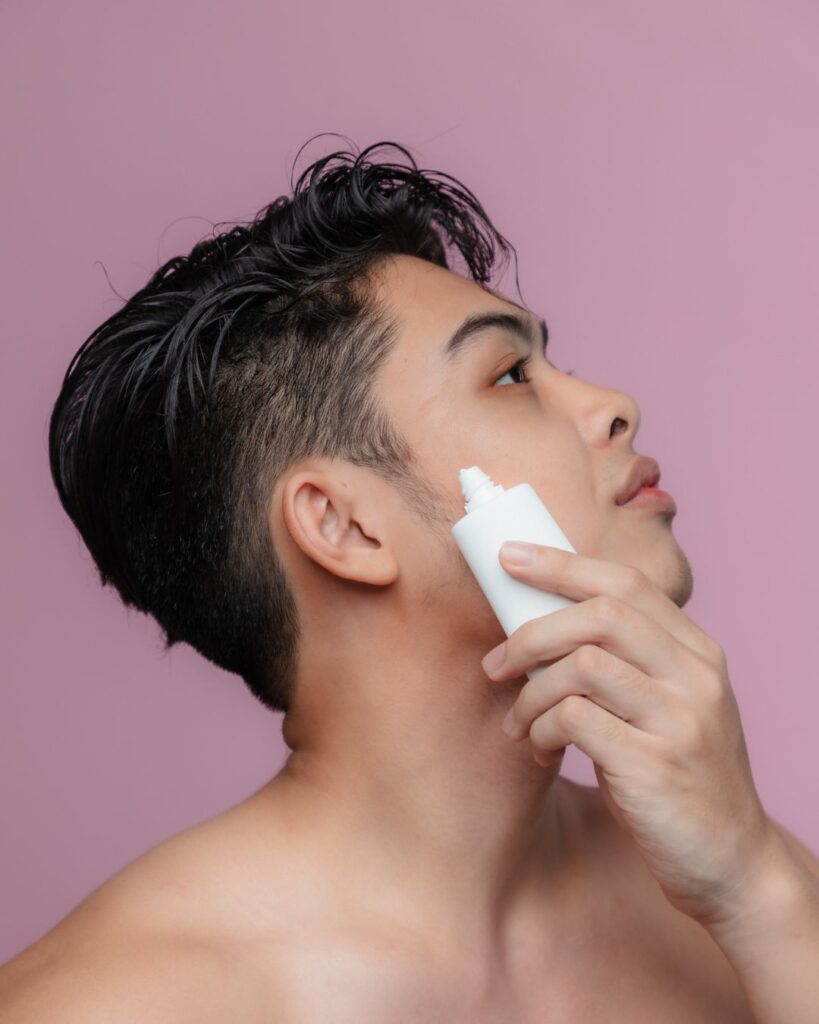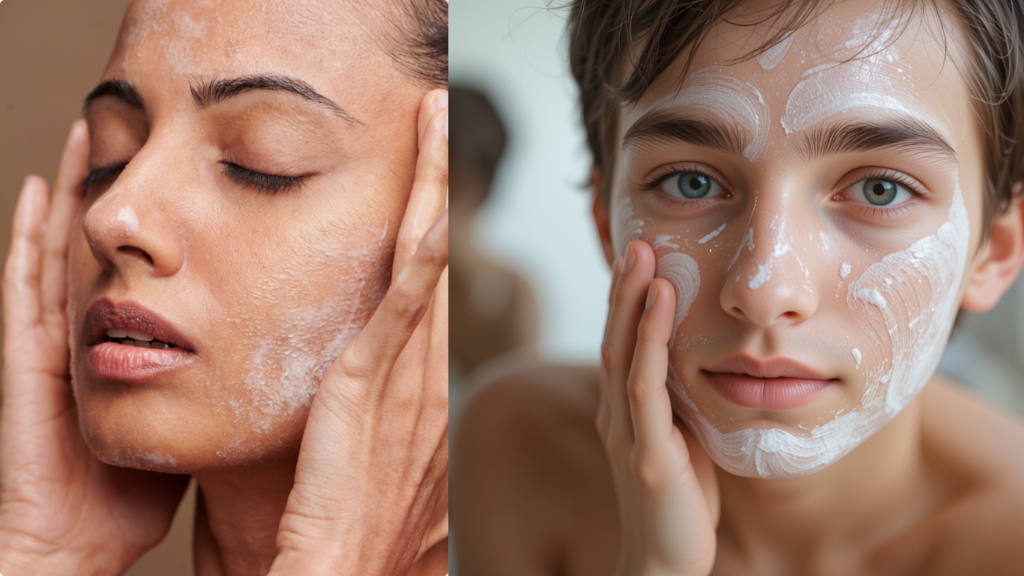Skin care is an essential part of maintaining healthy skin, and there are several important steps and tips to ensure your skin remains in good condition. Here’s a detailed breakdown of skin care tips:
Understand Your Skin Type
Knowing your skin type is good for choosing the right products. The main skin types are:
Why it matters: Understanding whether you have oily, dry, combination, sensitive, or normal skin will help you choose the right products. Using products meant for your skin type will maximize their benefits and prevent unwanted issues
Normal skin: Not too oily or dry, minimal imperfections.
Oily skin: prone to shine and breakouts due to high sebum production.
Dry skin: Feels tight, rough, or flaky, and may have redness or irritation.
Combination skin: A mix of oily areas (usually the T-zone: forehead, nose, chin) and dry patches.
Sensitive skin: Prone to irritation, allergic reactions and redness.
Choose products designed for your skin type to address specific needs effectively.
Cleansing
Why it’s important: Cleansing removes dirt, oil, makeup, acne,sweat and environmental pollutants from the skin. It’s crucial to do this step twice a day (morning and night) to maintain clear and healthy skin.
How to do it: Use a gentle, hydrating cleanser for dry skin and a foaming or gel cleanser for oily skin. Avoid hard scrubbing, which can irritate the skin.
Tip: Never cleanse with hot water. Lukewarm water helps maintain the skin’s natural moisture balance.Avoid cleansers with harsh chemicals or fragrances
Exfoliation
Why it’s important: Exfoliating removes dead skin cells from the surface, promoting cell turnover and helping prevent clogged pores, which can lead to acne.
How to do it: Use a chemical exfoliant with AHAs (alpha hydroxy acids) or BHAs (beta hydroxy acids) for sensitive or dry skin. For oily skin, physical exfoliants with scrub particles can be more effective. However, be gentle to avoid damaging the skin’s barrier.
Tip: Exfoliate 1–3 times a week. Over-exfoliating can cause irritation and redness.
Toning
Why it’s important: Toners help balance the skin’s pH level after cleansing. They also remove any leftover impurities and prep the skin for further treatment.
How to do it: Use a toner suitable for your skin type. For dry skin, opt for hydrating toners with ingredients like glycerin or rose water. For oily or acne-prone skin, choose toners with ingredients like salicylic acid.
Tip: Apply toner with a cotton pad or your hands, gently pressing it into your skin.
Moisturizing
Why it’s important: Moisturizing is vital for hydrating and locking in moisture, particularly after cleansing. Even oily skin need hydration to retain its barrier function.
How to do it: Select a moisturizer for your skin type. For dry skin, choose thicker creams or oils, while gel-based moisturizers are ideal for oily skin.
Tip: Even if you have oily skin, you should moisturize often. It helps to maintain balance and prevents oil overproduction.It can irritate the skin.

Sun Protection
Why it’s important: Sun exposure is the leading cause of skin aging, including wrinkles, fine lines, and pigmentation. It also increases the risk of skin cancer.
How to do it: Use a broad-spectrum sunscreen with SPF 30 or higher every morning, even on cloudy days or indoors, as UVA rays can penetrate windows.
Tip: Reapply sunscreen every two hours if you’re outdoors for extended periods, and immediately after swimming or sweating.
Hydration
Why it’s important: Drinking enough water helps maintain skin hydration from the inside out. Hydrated skin looks plump and healthy.
How to do it: Aim for at least 8 cups of water a day, and adjust depending on your activity levels and climate. You can also eat water-rich foods like cucumbers, watermelon, and oranges.
Tip: Use a humidifier in dry environments to prevent dehydration of the skin.Look for moisturizers and serums with hyaluronic acid, aloe vera, and glycerin, which help bind moisture to your skin.
Healthy Diet
Why it’s important: A balanced diet rich in vitamins, minerals, and antioxidants promotes skin health. Nutrients like vitamins C and E help protect the skin from free radical damage.
How to do it: Include foods like berries, leafy greens, nuts, seeds, and fatty fish (like salmon) that are high in antioxidants and omega-3 fatty acids.
Tip: Limit processed foods, refined sugars, and dairy if you notice they contribute to breakouts or inflammation.
Sleep and Stress Management
Why it’s important: Quality sleep allows your skin to repair and regenerate, while stress can trigger acne and other skin issues.
How to do it: Aim for 7–9 hours of sleep per night. Practice stress-relieving activities like yoga, meditation, or deep breathing exercises.
Tip: Invest in a silk pillowcase to reduce friction on the skin and minimize the risk of wrinkles.
Targeted Treatments
Why it’s important: Treatments like serums and masks address specific skin concerns, such as acne, pigmentation, or fine lines.
How to do it: Choose products with active ingredients like vitamin C for brightening, retinoids for anti-aging, or niacinamide for calming and redness reduction.
Tip: Introduce new products gradually and patch-test to avoid irritation.
Avoid Touching Your Face
Why it’s important: Hands can transfer bacteria, oil, and dirt to the skin, potentially causing breakouts or irritation.
How to do it: Avoid touching your face unless you are cleaning or applying skincare. If you need to touch your face, make sure your hands are clean.
Tip: Don’t pick at blemishes or acne, as this can lead to scarring and infection.

Regular Skin Check-ups
Why it’s important: Regularly checking your skin for new moles or changes in existing ones can help detect skin conditions, including skin cancer, early.
How to do it: Look for any unusual spots or changes in shape, size, or color of existing moles. Consult a dermatologist for regular check-ups and if you notice anything concerning.
Bonus Tips:
Avoid Smoking and Excessive Alcohol: Smoking reduces blood flow to the skin and depletes oxygen, while alcohol dehydrates the skin.
Gentle Product Application: Avoid harsh rubbing. Pat or gently press products into the skin to avoid irritation.
By following these skin care tips, you can keep your skin looking healthy, vibrant, and youthful. Remember, consistency is key, and it may take time to see noticeable results.
Also read Best Natural Hair Care Tips for Healthy Hair.


